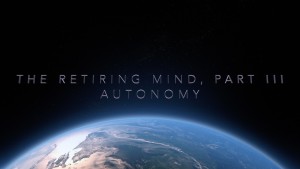 I picked up a whitebait pizza while stopped along the West Coast of New Zealand tonight. Whitebait are tiny little swarming immature fish that can be scooped out of estuarial river flows using big-mouthed nets. They run, they dart, and it is illegal to change river exit points to try to channel them for capture. Hence, whitebait is semi-precious, commanding NZD70-130/kg, which explains why there was a size limit on my pizza: only the small one was available.
I picked up a whitebait pizza while stopped along the West Coast of New Zealand tonight. Whitebait are tiny little swarming immature fish that can be scooped out of estuarial river flows using big-mouthed nets. They run, they dart, and it is illegal to change river exit points to try to channel them for capture. Hence, whitebait is semi-precious, commanding NZD70-130/kg, which explains why there was a size limit on my pizza: only the small one was available.
By the time I was finished the sky had aged from cinereal to iron in a satire of the vivid, watch-me colors of CNN International flashing Donald Trump’s linguistic indirection across the television. I crept out, setting my headlamp to red LEDs designed to minimally interfere with night vision. Just up away from the coast, hidden in the impossible tangle of cold rainforest, there was a glow worm dell. A few tourists conjured with flashlights facing the ground to avoid upsetting the tiny arachnocampa luminosa that clung to the walls inside the dark garden. They were like faint stars composed into irrelevant constellations, with only the human mind to blame for any observed patterns.
And the light, what light, like white-light LEDs recently invented, but a light that doesn’t flicker or change, and is steady under the calmest observation. Driven by luciferin and luciferase, these tiny creatures lure a few scant light-seeking creatures to their doom and as food for absorption until they emerge to mate, briefly, lay eggs, and then die.
Lucifer again, named properly from the Latin as the light bringer, the chemical basis for bioluminescence was largely isolated in the middle of the 20th Century. Yet there is this biblical stigma hanging over the term—one that really makes no sense at all.… Read the rest
 Robert Gordon’s book on the end of industrial revolutions recently came out. I’ve been arguing for a while that the coming robot apocalypse might be Industrial Revolution IV. But the Dismal Science continues to point out uncomfortable facts in opposition to my suggestion.
Robert Gordon’s book on the end of industrial revolutions recently came out. I’ve been arguing for a while that the coming robot apocalypse might be Industrial Revolution IV. But the Dismal Science continues to point out uncomfortable facts in opposition to my suggestion.


 Research can flow into interesting little eddies that cohere into larger circulations that become transformative phase shifts. That happened to me this morning between a morning drive in the Northern California hills and departing for lunch at one of our favorite restaurants in Danville.
Research can flow into interesting little eddies that cohere into larger circulations that become transformative phase shifts. That happened to me this morning between a morning drive in the Northern California hills and departing for lunch at one of our favorite restaurants in Danville. A pervasive commitment to ambiguity. That’s the most compelling sentence I can think of to describe the best epistemological stance concerning the modern world. We have, at best, some fairly well-established local systems that are reliable. We have consistency that may, admittedly, only pertain to some local system that is relatively smooth or has a modicum of support for the most general hypotheses that we can generate.
A pervasive commitment to ambiguity. That’s the most compelling sentence I can think of to describe the best epistemological stance concerning the modern world. We have, at best, some fairly well-established local systems that are reliable. We have consistency that may, admittedly, only pertain to some local system that is relatively smooth or has a modicum of support for the most general hypotheses that we can generate.
